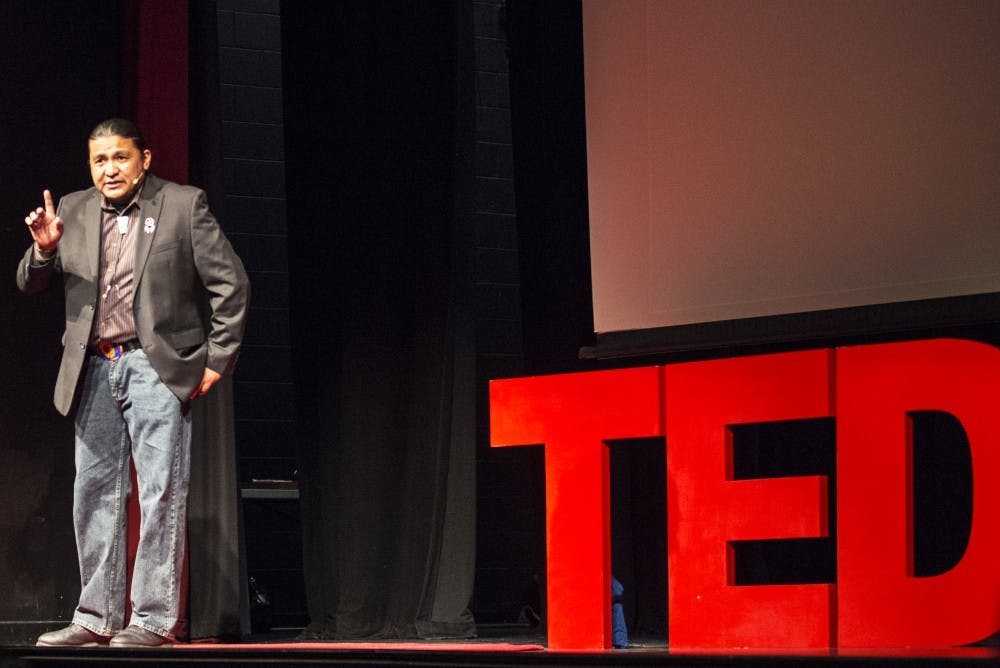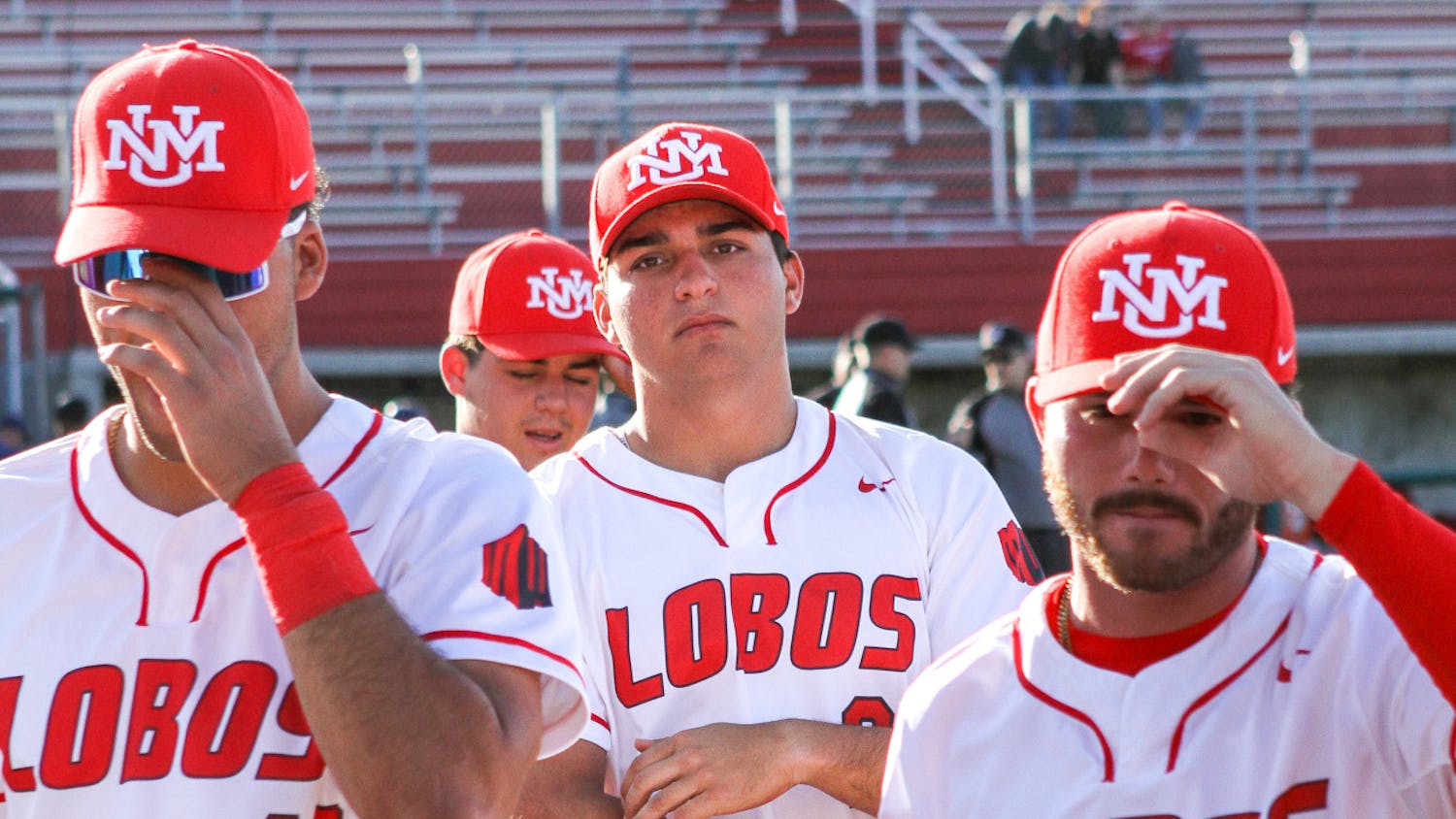What is educational equity, and what does it have to do with our education system?
This is the question TEDxABQED sought to address at the African American Performing Arts Center on Friday afternoon with the Equity in Education lecture theme.
The tagline written on the event brochures read: “fairness is providing each person with the right tools to succeed”.
Friday’s theme focused on the lack of fairness in today’s educational system and how we as a community can overcome it.
13 speakers and two TEDTalks videos presented on a range of topics on this theme, including institutionalized racism, technology, mental health issues in students, preparing students for college culture and more.
The first speaker, Natalie Robinson Bruner, director of the STEM Gateway program at UNM, gave a talk titled, “The Insanity of Exclusion in STEM.”
She spoke about how the lack representation for non-white and/or female students in STEM majors and careers indicates a system that operates under the very definition of insanity: doing the same thing repeatedly and expecting different results.
“We as a society continue to under-fund, under-educate, unprepare, and alienate our underrepresented students,” Bruner said during her speech.
She spoke about how this lack of support and representation limited the perspective and the abilities of the STEM community as a whole.
In her speech, “Bridging the Gap for Future College Students,” JoAnn Myers, the talk’s third speaker, expanded on the level of unpreparedness in local students with statistics.
“51 percent of New Mexico high school graduates, upon entry to college, require remediation,” Myers said.
According to a 2014 study presented to the New Mexico Legislative Finance Committee, the chances of students who require a single remedial course graduating with a bachelor’s degree in six years drops to 17 percent.
Get content from The Daily Lobo delivered to your inbox
“Add a second remedial course, and the chance of graduating now drops to five percent,” she said.
Myers pointed at the lack of college culture preparation as the cause of these statistics. She suggested things like frequent college tours and dual-credit requirements to expose students to colleges more, in order to give them a sense of what college will be like, as well as to equip them with more information about the process of entering college.
Most of the speakers at the event were teachers and educators, but there were also some students that spoke from the other side of the education spectrum.
Amidooli “Rainbow” Pacheco, a senior Native American studies major, spoke about his experience as an indigenous student dealing with the lack of equity in today’s educational system.
April Requard, an elementary school teacher, brought a group of 9-10 year old students with her called the S.W.A.T. (Students Working to Advance Technology) Team to talk about having students teach technology to teachers and parents for educational use.
Andre Gonzales, the eighth speaker, spoke about how to change the lack of choice given to students about their own education.
Each speech covered a different aspect of equity, or the lack of it, in education, but recurring themes appeared throughout each one, such as diversity among students and their connection with and power over their own educational experiences.
Nearly every speaker gave a call to action in his or her speech. They encouraged audience members who were teachers, parents, students and leaders to implement change in their communities. They provided the audience with ideas about the kinds of groups people should form and the kinds of programs people should institute to begin bridging the educational equity gap present in our current system.
Some audience members, including TEDxABQED volunteers, became inspired by these calls to action.
Robanne Harrison, an AP World History teacher at Manzano High School, volunteered to help put together Friday’s event. She said she volunteered to work at the event because she wants to start a TED group at Manzano to give students there a voice.
“I want to give students an opportunity to talk about their creative ideas that they don’t get a chance to address in the classroom,” Harrison said. “I know that there are a lot of students who have a lot of great ideas and solutions to big problems, and they’re not given an opportunity to voice that.”
She said the speeches also inspired her to return to her classroom and ask students for more assistance with technology when teaching.
“I cannot wait to tap into that energy and that knowledge that we [teachers] really don’t have because we didn’t grow up with it,” she said. “It’s a steep learning curve for all of us that didn’t grow up with it. But for them, it’s just natural.”
Alongside high school educators like Harrison, some UNM educators present were inspired by the speeches as well.
Sarah Kostelecky, an assistant professor and education librarian, said she attended not only with the perspective of a teacher, but with the perspective of a learner as well.
“There’re so many different factors affecting how people learn today. And it’s not just students,” Kostelecky said. “We all learn inside and outside the classroom from other people, and I think it’s important to acknowledge that.”
Kostelecky said she wants to take the understanding she gained of students’ experiences from the lectures and transfer that into new ways for her and her colleagues to help students get more support with their education.
Skylar Griego is a culture reporter at the Daily Lobo. She can be reached at culture@dailylobo.com or on Twitter @TDLBooks.






